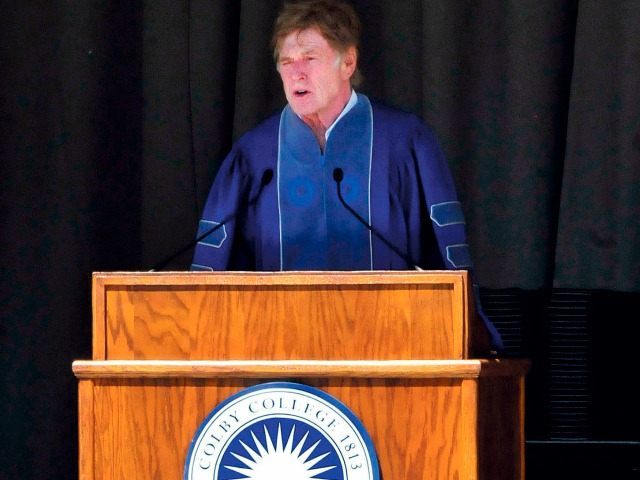Colby College Professor Aaron Hanlon argues that taking platforms away from controversial speakers on college campuses is merely a “product of free expression,” in a recent column for the New Republic.
Aaron Hanlon, Assistant Professor of English at Colby College, commented on the controversy surrounding Ann Coulter’s upcoming visit to UC Berkeley. He argues that university administrators should be able to dictate which guest lectures they find acceptable and which they don’t. Hanlon’s argument claims something very specific — academics should be able to exercise the same amount of influence and control over guest speakers invited by students that they have over their university’s academic curriculum.
https://twitter.com/tciccotta/status/856658500524675076
“No-platforming is better understood as the kind of value judgment that lies at heart of a liberal arts education — ‘liberal’ referring not to politics, of course, but to the kinds of knowledge the ancient Greeks and Romans believed were necessary for the flourishing of a free person, necessary for full and effective participation in civic life,” Hanlon argues. “This has always meant deciding what people needed to know, but also what they don’t need to know — or at least which knowledge and skills deserved priority in one’s formal education.”
Hanlon goes on to argue that taking a platform away from a controversial speaker isn’t censorship, but rather academics just exerting their influence over the university discourse. It’s a curious and concerning argument, one that is likely foreign to most conservative and libertarian college students considering that few academics and administrators to this point have explicitly claimed authority over who students may or may not invite to speak as a guest on their campus.
Attempts to take platforms away from controversial speakers aren’t acts of censorship, argues Hanlon. They are merely extensions of “free expression and the foundational aims of a classically liberal education.”
No-platforming may look like censorship from certain angles, but from others it’s a consequence of a challenging, never-ending process occurring at virtually all levels of the university: deciding what educational material to present to our students and what to leave out. In this sense, de-platforming isn’t censorship; it’s a product of free expression and the foundational aims of a classically liberal education.
Hanlon insists that efforts to restrict events featuring provocative speakers are mere “value judgments” by administrators, who are attempting to prioritize the most valuable of information before presentation to students. While relevant with regards to curriculum design, is not at all once students step outside of the classroom.
Although Hanlon concedes that student censors — some of whom have resorted to violence in an attempt to shut down speaking events — are unlikely to win over hearts and minds, his comparison between attempts to de-platform Coulter and the way he designs his curriculum leaves much to be desired. “If I end up leaving off James Madison in favor of Edmund Burke, I’m hardly “censoring” Madison [from my course]…Such decisions aren’t about “shutting down” points of view; they’re about finding the most valuable ways to use our limited time and resources,” Hanlon writes.
It’s a poor argument. The distinction between curriculum design and the guest speakers that students choose to invite to campus is abundantly clear. Professors deserve the academic freedom to design their curriculum in whichever way they please. However, administrators have no authority to place “value judgments” on the programming that students choose to bring to their campus. It’s the authoritarian attitude of academics like Hanlon that has made provocateurs like Coulter and Yiannopoulos so appealing.
At public universities like UC Berkeley, this desire to restrict the range of allowable speech is not just absurd; it’s unconstitutional.
Tom Ciccotta is a libertarian who writes about economics and higher education for Breitbart News. You can follow him on Twitter @tciccotta or email him at tciccotta@breitbart.com

COMMENTS
Please let us know if you're having issues with commenting.